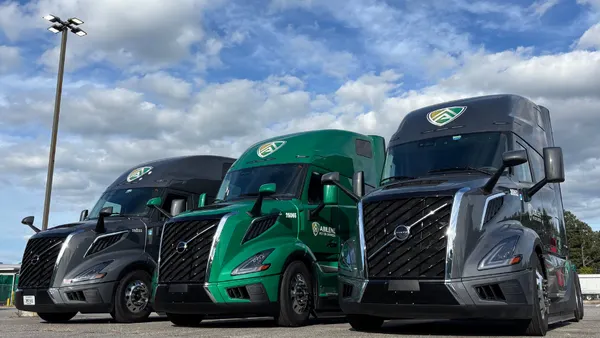Trucking has a unique workforce structure consisting of two teams that operate very differently: office workers who coordinate operations and drivers who operate on the road to keep freight moving. When it comes to health insurance plans, this dual structure can make it hard to find options that fit the needs of both.
Instead of defaulting to generic and static group options, fleet HR leaders can deploy a health benefits strategy that matches how their company and diverse staff work: Individual Coverage Health Reimbursement Arrangements (ICHRAs).
ICHRAs are built for modern transportation teams that need to span the office and the highway. These plans allow trucking carriers to offer stability to office employees and choice and portability to drivers — all while making benefits easier to manage.
Before you make your next benefits decision, consider how an ICHRA may help you manage rising benefits costs and align with your retention priorities.
Setting up and managing an ICHRA
ICHRAs create flexibility for trucking companies by letting them offer health benefits that fit the needs of drivers and office staff. This approach also enables employers to respond effectively to workforce turnover, seasonal demand and multi-state operations. As a modern alternative to traditional group plans, ICHRAs make it easier to provide budget-friendly, individualized coverage for every member of your team, whether they’re behind the wheel or behind a computer.
ICHRAs allow fleet owners and HR leaders to set a tax-free allowance – or “defined contribution” – for employees. From there, team members select the health insurance that best fits their situation, whether that’s a plan with low premiums or low out-of-pocket costs. Then, you reimburse them the defined amount.
Whether you run a regional fleet or a national logistics operation, ICHRAs let you deliver coverage options your workforce can actually use and keep, even if their roles or routes change.
Setting up an ICHRA takes a few easy steps:
- You choose the contribution level for each employee class (hourly drivers, salaried dispatchers, etc.).
- Your employees evaluate their options and enroll in a plan that fits their needs.
- Your employees are reimbursed for eligible insurance costs up to the amount you agreed to provide.
What trucking employers gain with an ICHRA
By offering a flexible benefits model, ICHRAs give trucking employers the ability to support all types of team members across locations. You set contribution levels for each eligible employee class, leaving it up your employees to choose the coverage that best fits their needs.
Supporting a workforce scattered across roles, terminals and states becomes much simpler with an ICHRA. You can set up different contribution levels for full-time, part-time or location-based groups, all under a single program. This simplifies administration because you don’t need to maintain (or reconcile) multiple policies: Each employee buys their own individual coverage.
For trucking companies wanting to attract workers, an ICHRA can provide a faster path to benefits. With an ICHRA, employers can choose to make health benefits available to new hires right away, or after a short waiting period, depending on their plan design. The idea of immediate coverage can make your open positions more attractive to prospective employees.
As the size of your driver pool and the pace of your freight volumes fluctuate, an ICHRA may make it easier to plan and control benefits spending. Contributions are available to employees while they remain actively employed and eligible. If an employee leaves, your obligation to reimburse the cost of coverage ends, but the former employee can keep their health insurance policy. This capability can help you to make temporary staffing or seasonal roles more attractive.
What trucking employees gain with ICHRAs
ICHRAs offer significant benefits to workers in trucking. Because coverage is tied to drivers as individuals rather than to their employers, they can switch companies or move between carriers without losing their health insurance plan. This helps reduce coverage gaps when drivers change jobs or transition between different industry segments.
Unlike traditional group plans, ICHRAs empower drivers and office staff to choose the plan that best matches their personal and family needs. Instead of being limited to one or two group coverage plans, your employees can select from an entire marketplace of insurance options based on factors including typical routes, home base or specific health concerns among family members.
ICHRAs give employees a financial advantage because employer contributions used for qualified medical expenses are not treated as taxable income. Compared with receiving the same amount as cash compensation, employees keep more of each dollar.
Modern benefits for a changing trucking workforce
ICHRAs offer a practical step forward for trucking companies that want to balance cost control, operational complexity and employee expectations.
By offering flexibility that supports distinct needs, these plans make it easier to stay competitive in a tight labor market and manage benefits without unnecessary administrative burden.
For fleets of all sizes, ICHRAs provide a streamlined and effective way to deliver healthcare options that adapt to industry challenges and offer true choice to trucking employers and employees alike.
For HR Use Only










